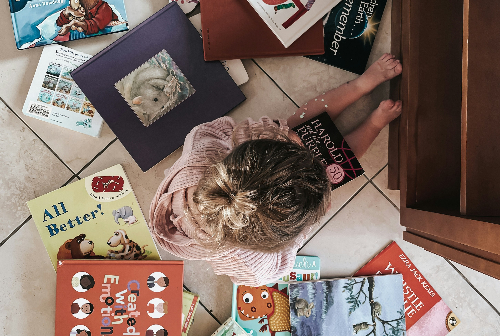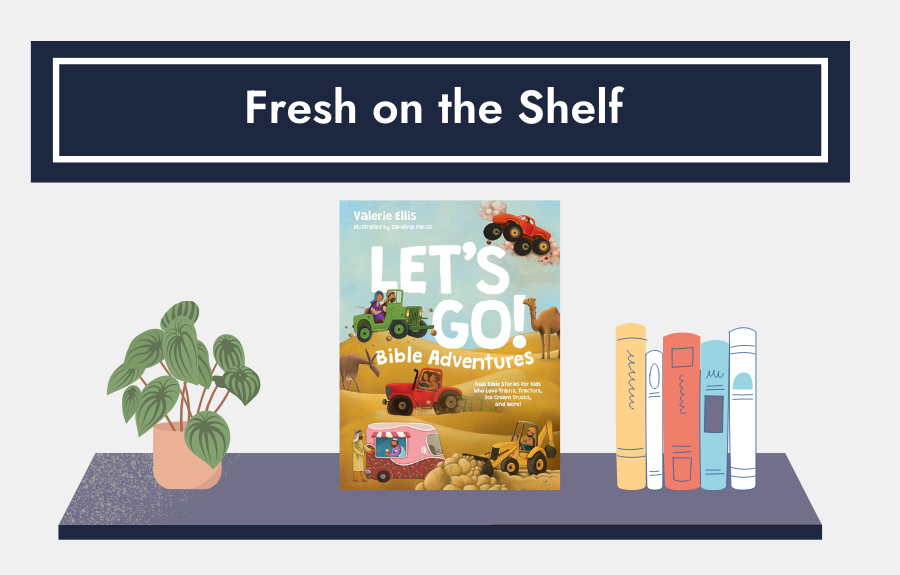I’m starting something new on the blog: a roundup of the best articles (and sometimes books) I’ve read that month. While I’ll still compile a list like this at the end of the year, I thought this would be a good way to keep myself accountable to reading more. I spend far more time scrolling Twitter than I should and in order to have a monthly list of good articles, I actually have to spend some time reading.
I’ve listed the articles below, but on this first roundup, I feel a need to make two notes:
-
Unfortunately, this digital culture in which we live defaults to the most uncharitable read of that which does not fit in our tiny echo chambers, so a disclaimer is in order. Just because an article is listed here does not mean that I concur with every single word of it. I will include articles that I think are worthwhile reads, even if I don’t necessarily agree with it 100 percent.
-
I started using Readwise last year to save, highlight, and annotate books and articles and I’ve become a big fan of their read-it-later app, Reader. If you’re interested in trying it, you can get a second free month in your trial if you sign up for Readwise using this link. (There is nothing in this for me, I just really do like it.)
Now that those are out of the way, here are the best articles I read in January (along with a bit of side commentary from yours truly):
Discerning in Doctrine But Not Discerning in Character
Tim Challies
Challies.com
Tim Challies offers a thoughtful and needed reflection on an important topic. Sound doctrine is not always a guarantee of sound character, and we would be wise to seek discernment on both sides of that coin. He writes:
“There is never a time to relax your guard when it comes to this critical discipline. At the same time, it’s also to avoid the kind of naiveté that assumes everyone who lays claim to sound doctrine is truly concerned about defending and living out the Christian faith, not to mention concerned about the kind of unity Christ calls us to pursue.”
The Life and Death of the Suburban American Mall
Matthew Christopher
Atlas Obscura
The article combined with the photography was simultaneously fascinating and made me a bit…sad? Nostalgic? Along with home, church, and school, the mall was a central location of my childhood and adolescence—the city square of pre-teen girls like me. Like many others, I have no desire to frequent a mall now. However, it’s felt a bit like whiplash to watch the American mall become irrelevant so quickly, and I resonate with the quote below:
“Perhaps as a culture, we have outgrown the mall, but it is an emotional loss. We may not have always wanted to go them, but we miss them when they’re gone.”
The Very Real Appeal of Slow Parenting
Christian Dashiell
Fatherly
In an age where sensory-bin-making, Instagram-influencer moms have become rather prolific, I appreciate any post that encourages the simplification of childhood and releases pressure on parents to fill their kids’ time with all kinds of structured play and activities. I’ve read several, well-researched articles that make the same point as this one: independent free play, age-appropriate risk-taking, and boredom are good for kids.
This article, in particular, is very practical—giving specific ways parents can avoid overscheduling, create space for kids to “breathe,” and develop rhythms in which the whole family is able to enjoy time together. These include 1) Resisting the Urge to Overschedule; 2) Preserve Time for Free Play; 3) Embrace Boredom, and 4) Practice Digital Wellness. Speaking of that last point, I was convicted by the quote below:
““Parents can foster healthier relationships with digital devices…by modeling responsible online behavior that helps children understand the importance of balancing screen time with other activities.”
Related: How to Fight the Anxiety That Makes You Want to Hover
Will My Children Forsake the Faith?
Michele Morin
Desiring God
I pray every day that the Lord will save my children and preserve their faith throughout their lives. This article was a needed reminder that my husband and I are the primary disciplers (Morin uses the term “Reminder,” playing off Peter’s language in the first chapter of his first letter) of our children, and that this discipleship entails both “structured teaching and purposeful living.”
Morin writes from the perspective of mom who homeschooled her children. To be clear, this is not a criticism and does not negate her words by any stretch. However, I’d like to read this same article written from the perspective of a mom whose children went to school outside of her home, particularly regarding this quote from the article: “By grace, you can be the strongest, steadiest, and most compelling voice in their ears.” I imagine the practical application of that quote is different for those whose kids are not educated at home, or by Christians at all.
The Flip Side to the Church as Family
Trevin Wax
The Gospel Coalition
I did not have a frame of reference for “the church is family” until I went to seminary—though, growing up, I did go to church where the older members referred to each other as “brother” or “sister.” However, my time in seminary and, living away from my biological family, gave credence to the whole “church as family” concept for me.
Wax’s article was a helpful corrective to an idealized version of “the church is family” concept, as summarized by the quote below:
“The church doesn’t solve loneliness. Only God does that. Yes, often he does that through his people. But the way he accomplishes this work is by putting you through the difficult, sanctifying process of loving people who don’t seem to love you back and remaining fiercely committed to people who may be a source of heartbreak in your life.”
To Moms of One or Two Children
Sarah Short
No Way But Through
Whenever I’m overwhelmed or at wit’s end with this thing called motherhood, I often feel silly for complaining because….I only have two kids. And because here in Seminary Land, it often feels like everyone else has 4 to 10 kids. And because, at least in this season, my kids are just very low-maintenance as far as toddlers go.
I appreciate this article for two reasons. First, it’s a reminder that in every season of life, God’s grace is sufficient for today, even as our “todays” become fuller and busier. (A while back, I saw a tweet that seems to sums up this idea in a helpful way.) Second, I feel because it’s a reminder to all moms that we can’t parent out of our own strength, whether we have one kid or eight. We must always rely on the sufficiency of God, who loves our children both more than we do and more perfectly than we do.
Why “Wasting” Time with God is What our Hearts Need Most
John Mark Comer
AnnVoskamp.com
I am task-oriented to an extreme degree, and nowhere is that more problematic than in my quiet time. The depth and quality of my time with the Lord in prayer and in His word trickles down and affects all other aspects of my life. So, if I can’t help but see it as a task—as something to check off a list—then it’s not a far leap to reduce everything else in my life to a task.
This has always been a struggle, but especially so in recent weeks. That’s why I don’t think it was an accident that I came across this article. There were several “gut-punch” quotes from Comer, but this one was the reminder I needed most:
“Prayer—of any kind—will always remain a chore, another task on our religious to-do list, until we come to realize that the reward for following Jesus is, well, Jesus. It’s the sheer joy of friendship with him.”
Influencer Parents and the Kids Who Had Their Childhood Made into Content
Fortesa Latifi
Teen Vogue
This article is about a year old—and I can’t believe I’m putting an article from Teen Vogue here—but for years I’ve been both curious and deeply concerned about “content babies:” the children of influencers and other famous social media personalities, whose childhood is employed or worse, exploited, for the sake of their parents’ platforms. I came across this article because a tweet from the writer popped up on my feed (she’s written additional articles—linked in the thread on the same subject that are also worth reading).
Is this clickbait? Maybe. But I have a feeling she’s right—that in the next decade we’ll begin to see both research and anecdotes about the stolen childhoods of many who were born to the Rich and Famous: Social Media Edition.
And last but not least:
The Coddling of the American Mind: How Good Intentions and Bad Ideas Are Setting Up a Generation for Failure
Greg Lukianoff, Jonathan Haidt
Penguin Publishing Group, 2018
This book has been on my to-read list for a long time, and—after starting it about 3 months ago—I finally finished it this month. Though it was published in 2018, I plan to do a more in-depth review on it at some point, as I think it should be on every parent and educator’s reading list. Authors Greg Lukianoff and Jonathan Haidt push back against three popular “untruths,” give evidence for how these untruths have affected college campuses in particular, and offer steps toward correcting these untruths.
I made too many highlights in this book to choose just one to put here, but if you have not yet read this books, I highly encourage you to do so.




